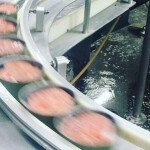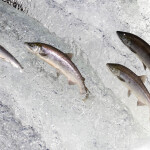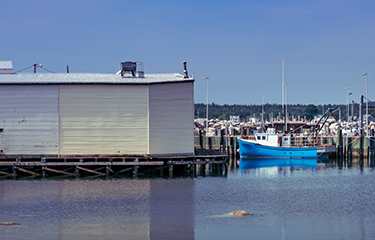The provincial government of Nova Scotia, Canada, is planning to end a five-year moratorium on the issuance of new seafood processing and buying licenses.
According to a CBC report, Nova Scotia Fisheries and Aquaculture Minister Steve Craig plans to lift the moratorium, which was intended to be temporary when it was enacted in 2018.
"I've even had people tell me that the moratorium is the policy, which is not the case. This year you will find that the moratorium is gone and we'll have a policy in place,” Craig said.
The moratorium was lobbied for by the Nova Scotia Seafood Alliance, a group representing small- and medium-sized seafood processing companies in the province. The alliance’s 140 member companies include lobster, mackerel, snow crab, and halibut processors from across the province.
Osborne Burke, the president of the alliance and general manager of Victoria Co-operative Fisheries, told the CBC that even without the moratorium, access to licenses for live product dealers and processors should be limited – especially for snow crab and lobster.
"Our bottom line, whether he removes the moratorium or not, there should be no net increase in the number of licenses. Everybody's chasing the same amount of raw material,” he said.
According to Burke, the amount of processing capacity in Nova Scotia exceeds the amount of raw material coming in, especially for snow crab.
Canada’s snow crab fishery includes the provinces of Nova Scotia, Newfoundland and Labrador, and Prince Edward Island, and market pressures have fluctuated across the region. A big increase on quota, which jumped 32 percent to over 50,000 metric tons (MT). Newfoundland and Labrador’s fishery has faced calls for a change in management after the 2022 season got off to a rocky start, faced a multi-week fight over prices, and then saw the price plummet and processors hint at halting all purchases of crab.
The quota in Nova Scotia, however, isn’t nearly as high – the 2022 total allowable catch in Northeastern Nova Scotia was 978 MT, and the quota in Southeastern Nova Scotia was 7,345 MT.
Craig said he isn’t sure what will happen after the moratorium is lifted, since the requirements before applicants can get a license could still limit how many will be granted.
“There will be all kinds of constraints around getting a license and there are standards that you'll have to meet," he said.
Craig said the moratorium has served as a barrier to the industry – which is his motivation for lifting it.
"There are young Nova Scotians who are not able to grow their businesses, even older Nova Scotians who aren't able to grow their businesses,” Craig said. “And we need to be able to look at what it takes to have a modern system where Nova Scotians who are highly competitive in this area can thrive.”
Photo courtesy of Ken Morris/Shutterstock







